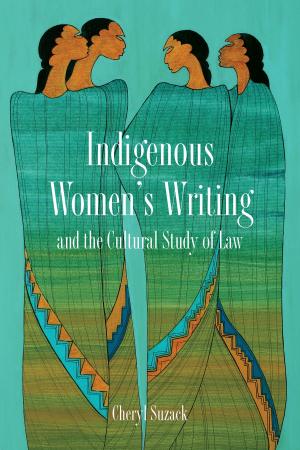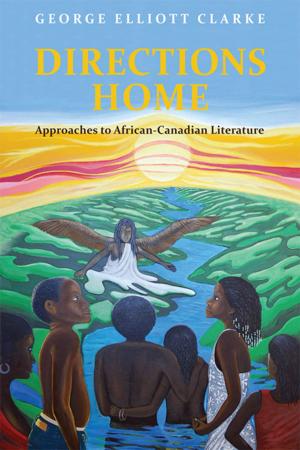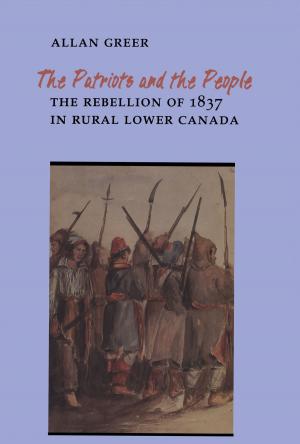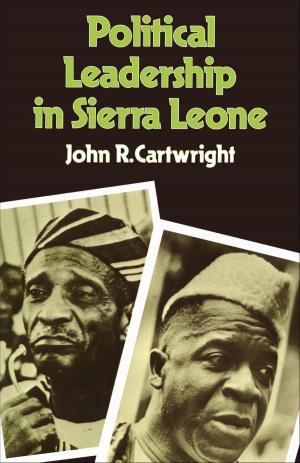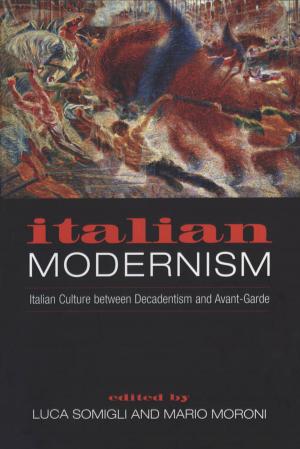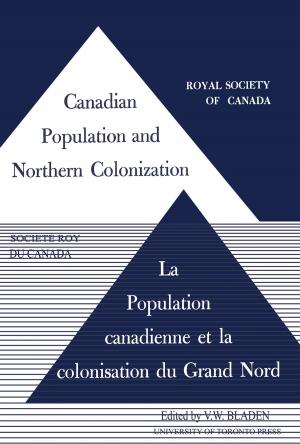| Author: | ISBN: | 9781442655454 | |
| Publisher: | University of Toronto Press, Scholarly Publishing Division | Publication: | December 15, 2001 |
| Imprint: | Language: | English |
| Author: | |
| ISBN: | 9781442655454 |
| Publisher: | University of Toronto Press, Scholarly Publishing Division |
| Publication: | December 15, 2001 |
| Imprint: | |
| Language: | English |
Profound and intriguing, Grettir's Saga is the last of the great Icelandic sagas. It tells of the life and death of Grettir, a great rebel, individualist, and romantic hero viewed unromantically. Grettir spends his childhood violently defying authority: as a youth of sixteen he kills a man and is outlawed; all the rest of his life he devotes, with remarkable composure, to fighting more and more formidable enemies. He pits himself against bears, berserks, wraiths, trolls, and finally, it seems, the whole population of Iceland. Yet he is not a bloodthirsty killer, but only a man who is totally unwilling to compromise. As a result of his desire for freedom, he becomes increasingly isolated, although he wishes to live in society, and indeed can hardly bear solitude. Driven back and forth from Iceland to Norway, harried around Iceland, he continually flees subjection and confinement only to find a perilous freedom beset both by the external hazards of a new land and by the internal hazards of loneliness and pride. He escapes to freedom and finds destruction. He finally meets his death in his last refuge on the top of an unscalable island near the northern tip of Iceland.
Grettir's Saga has several themes. One of them is the conflict between the Christian world and the survival of the pagan world, as sorcery or heroic pride; the other is the conflict between man's desire for individual freedom and the restrictive bond imposed by society.
This translation is the first into English since 1914; it is based on a more accurate Icelandic text than the earlier translations, and, unlike them, is unexpurgated and in unarchaic English. The saga has an especial modern relevance - a recent translation into Czech reached the top of the best-seller list. The present volume includes genealogies, a study of the legal system, and a critical assessment of the work.
Profound and intriguing, Grettir's Saga is the last of the great Icelandic sagas. It tells of the life and death of Grettir, a great rebel, individualist, and romantic hero viewed unromantically. Grettir spends his childhood violently defying authority: as a youth of sixteen he kills a man and is outlawed; all the rest of his life he devotes, with remarkable composure, to fighting more and more formidable enemies. He pits himself against bears, berserks, wraiths, trolls, and finally, it seems, the whole population of Iceland. Yet he is not a bloodthirsty killer, but only a man who is totally unwilling to compromise. As a result of his desire for freedom, he becomes increasingly isolated, although he wishes to live in society, and indeed can hardly bear solitude. Driven back and forth from Iceland to Norway, harried around Iceland, he continually flees subjection and confinement only to find a perilous freedom beset both by the external hazards of a new land and by the internal hazards of loneliness and pride. He escapes to freedom and finds destruction. He finally meets his death in his last refuge on the top of an unscalable island near the northern tip of Iceland.
Grettir's Saga has several themes. One of them is the conflict between the Christian world and the survival of the pagan world, as sorcery or heroic pride; the other is the conflict between man's desire for individual freedom and the restrictive bond imposed by society.
This translation is the first into English since 1914; it is based on a more accurate Icelandic text than the earlier translations, and, unlike them, is unexpurgated and in unarchaic English. The saga has an especial modern relevance - a recent translation into Czech reached the top of the best-seller list. The present volume includes genealogies, a study of the legal system, and a critical assessment of the work.




